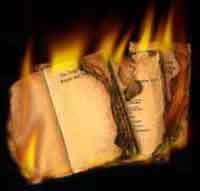by Shane Galvin
Jin Ping Mei is a Chinese naturalistic novel from the Ming Dynasty. It was hand-written by Xiaoxiao Sheng, and was first printed in 1610. The main character is Ximen Qing, and the story follows him throughout the fall of the Ximen household. Ximen is a wealthy merchant who is able to marry many wives and concubines. The focus of the story gradually shifts away from Ximen himself and onto his family of wives and concubines as they struggle for power and attention.
While it is still considered by many to be pornographic, Jin Ping Mei dealt with the issues of the role of women in ancient Chinese society, sexual politics, manners, and human corruption. These issues were all explored during the Cultural Revolution as well. Women were underappreciated during the Revolution, sexual politics were intertwined with marriage and age limitations associated with marriage. A couple could not marry before the age of twenty-five, and could not have a child before they were married. Abortions and other methods of preventing a birth after conception were against the law. This often put couples in dangerous positions in which they struggled to find someone to perform an abortion, or lose their freedom. Manners were often forgotten, and an extreme example of this is the beatings given to teachers by Mao’s Red Guard during the revolution. Actions such as these are also a big part of human corruption, but that took place on a much larger scale during Mao’s revolution.










